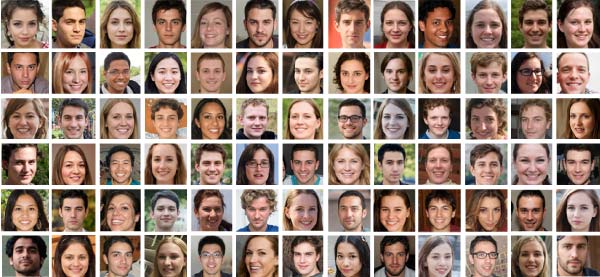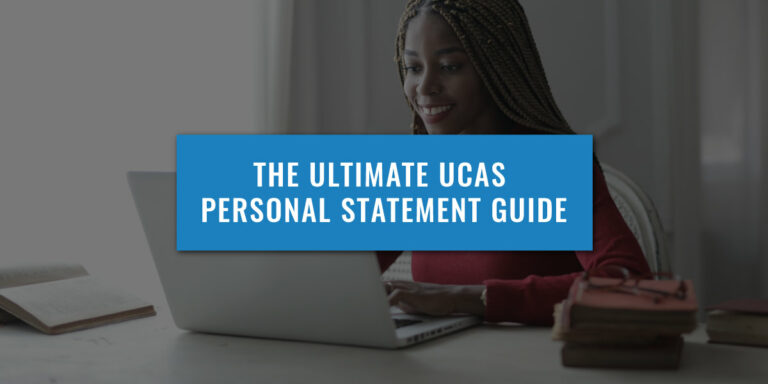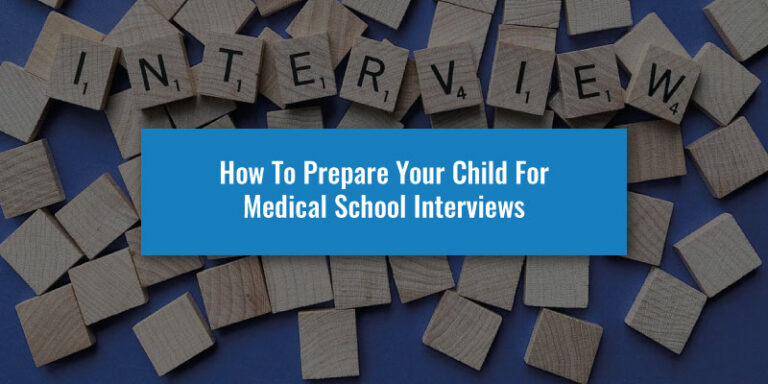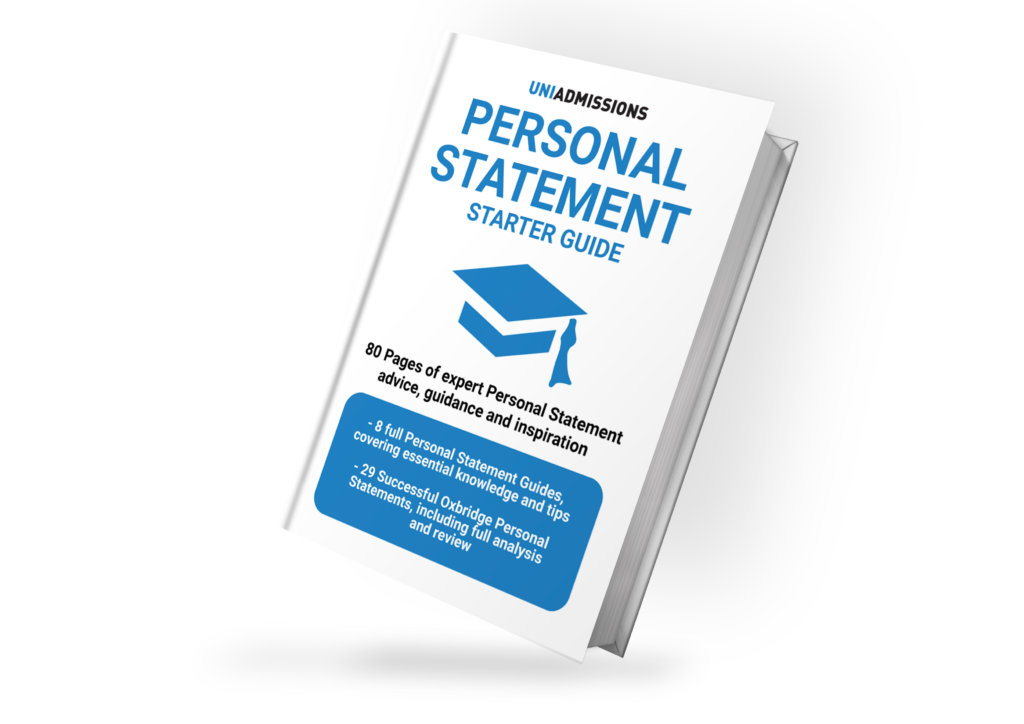Welcome to our popular Personal Statement series where we present a successful Personal Statement, and our Oxbridge Tutors provide their feedback on it.
Today, we are looking through a Medicine applicant’s Personal Statement that helped secure a place at Oxford University. The Medicine Course at Oxford provides thorough intellectual training with particular emphasis on the basic science research that underpins medicine.
Read on to see how this candidate wrote a Personal Statement that demonstrates the qualities to work in a medical profession.
NEW PERSONAL STATEMENT FORMAT
As of 2025, UCAS Personal Statements will be presented with a new three-question format. Be aware that the Personal Statement featured in this guide was written in the previous free-form format. Despite this, the example will still be beneficial to read as the content included remains the same as what you should aim to write in your own work.
When reading this example, think about which question each paragraph answers. To learn more about the Personal Statement changes, read our dedicated guide to the new Personal Statements here.
Here’s a breakdown of the Personal Statement:
CHARACTERS
3,976
WORDS
669
SUCCESSFUL?
1/4
The universities this candidate applied to were the following:
OXFORD
INTERVIEW + OFFER
SHEFFIELD
INTERVIEW + REJECTED
BRISTOL
INTERVIEW + REJECTED
EDINBURGH
INTERVIEW + REJECTED
Enrolling on our Oxbridge Medicine comprehensive Programme will give you access to Personal Statement redrafts.
Your tutor will give you actionable feedback with insider tips on how to improve and make your Personal Statement Oxbridge quality for the best chances of success.
Medicine Personal Statement
Sitting in front of Mrs D, beside the Royal Marsden consultant I was shadowing, I realised that as a doctor, treating a patient’s emotional concerns is just as important as treating the actual disease. A simple smile can work wonders. I also learnt how successful and worthwhile the mammography screening programme was, causing a 15% reduction in mortality rates. However, an article in the student BMJ made me think about the possible emotional, financial and physical stresses that overdiagnosis can cause. At Medlink I was excited to start developing my own practical skills by using an ophthalmoscope. I was then amazed whilst witnessing a bronchoscopy, at both the doctor’s anatomical knowledge and dexterity. On my work experience on a respiratory ward at East Surrey Hospital, I was struck by the seamless coordination of doctors, nurses, lab scientists and specialist teams. Doctors must be able to act as a leader within a team so that the patients feel comfortable and secure.
At the Royal Marsden, seeing medicine as an academic pursuit as well as a practical one, cemented my passion for the field. I became inspired to read The Molecular Biology of Cancer by Lauren Pecorino and Cancer by Paul Scoffing which, whilst fascinating, left me eager for more answers than they (or current research) could provide. As stem cells’ infinite ability to divide is drawn from the up-regulation of telomerase – as for cancer cells – does this feature cause them to acquire so many mutations that they end up inextricably linked to tumorigenesis? Furthermore, is cancer an inevitable price we pay for life? It was then, through studying depolarisation and the cardiac cycle in biology, that I started to wonder why malignant cardiac tumours are so rare. I find the extent of current research awe-inspiring but was also excited to discover that in every avenue of medicine I looked at, I had so many questions that are still, as yet, unanswerable.
Medicine also requires strong interpersonal skills. Helping out at The School for Profound Education was daunting and had a steep learning curve for me, especially the challenge of communicating wholly non-verbally. However, I found that devoting my time to the care and support of these children through a range of activities from changing feed bags to wheelchair barn dancing was immensely satisfying. Helping the ‘learners’ to enjoy life’s full potential made me realise that despite the huge commitment, being a doctor and dedicating yourself to ensuring people get the most out of their lives would always be rewarding and worthwhile. I was also interested to learn and research further the conditions some of the children had – a common example among the girls being Retts syndrome.
I have been elected as a Senior Prefect and also House Captain at my school. Finding time to relax is vital in medicine and I find playing guitar (grade VI) and piano perfect for me to do so. I have enjoyed engaging with German both in and outside of school, as an exciting opportunity to learn not just a language but also more about a foreign culture; participating in various international exchanges has enabled me to appreciate this fast-hand. I developed teamwork skills on my Gold Duke of Edinburgh expedition, and have been Club Captain of my swimming club for the last two years. Through perseverance and determination, I have pushed myself to succeed in competitions and I strive to approach academic life with a similar drive. As a voluntary ASA qualified swimming teacher, and through teaching English skills at my school, I have had valuable experience of the challenges of helping, leading and interacting with young children – in particular when I had to clear the pool and improvise a session in an emergency.
I aspire to be the doctor aiding Mrs D through such tough times. When I retire I hope to be able to look back on my career and know that I have made a positive impact on society. Medicine would allow me to achieve this.
For more inspiration, take a look through our other successful Personal Statement analysis articles:
Access "The Oxbridge Application Vault"
- 300+ page ebook for Oxbridge Applicants
- 25 page ebook for Personal Statement
- 2h+ online course to succeed in any exam
- Online Oxbridge Success Calculator
- 12 page ebook about UniAdmissions
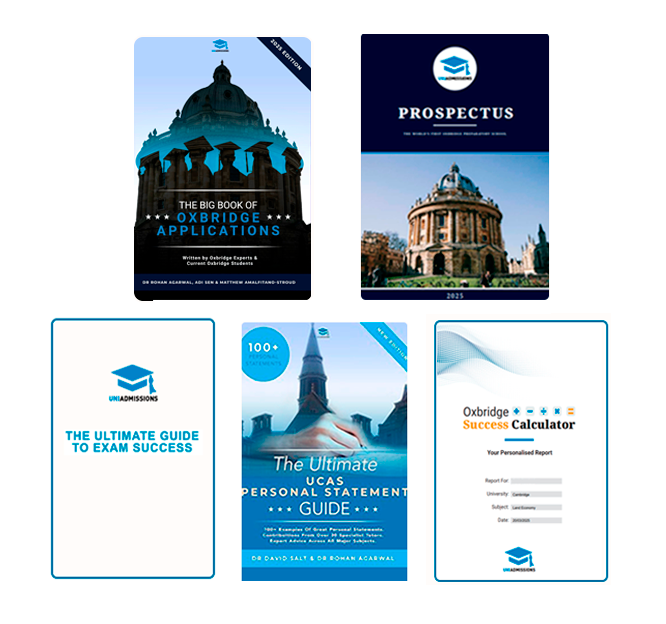
Download our Free Personal Statement Starter Guide
Good Points Of The Personal Statement
The student demonstrates some good reflections on their work experience. This is very relevant as the experience only really becomes relevant for providing strength to the statement if it is put into the right context and met with adequate reflection from the student’s side.
The student correctly underlines the correlation between soft and academic skills in the practice of medicine. This is important as it is a commonly underestimated relationship. In addition to the clinical work experience, the student also provides a good range of non-clinical experiences that all contribute to their personal development.
Particularly relevant in this context are lessons learned, teaching, as well as communication skills.
Bad Points Of The Personal Statement
In instances, the statement lacks a clear structure and a clear message. The information provided is a little all over the place. This is a pity as the unorganised structure makes it very difficult to follow the content and learn about the student, which significantly weakens the overall expressive power of the statement.
In addition, the statement remains vague and does not deliver the full extent of reflections on experiences possible. This leaves the statement superficial and falling short of the potential expressive strength.
UniAdmissions Overall Score:
★ ★ ★ ☆ ☆
An average statement that is, unfortunately, let down by some stylistic and content weaknesses that make it difficult to draw the maximum amount of information about the student from the statement.
With some more or less minor improvements to the structure and depth of reflection, this statement could be very strong.
In the form presented here, it does provide some insight into the student’s character and into what they consider important, but the statement sells itself short due to lack of detail.
The statement did receive an offer from Oxford University and interview invitations from Sheffield and Bristol. It’s important not to look at the statement in a vacuum, as we do not consider the student’s admissions test scores or grades in this analysis.
And there we have it – an Oxford Medicine Personal Statement with feedback from our expert tutors.
Remember, at Oxford, the Admissions Tutors are often the people who will be teaching you for the next few years, so you need to appeal directly to them.
Check out our Free Personal Statement Resources page for even more successful personal statements and expert guides.
Our expert tutors are on hand to help you craft the perfect Personal Statement for your Oxford Medicine application.
With our Oxbridge Medicine Premium Programme we help you craft the perfect Personal Statement, achieve a highly competitive BMAT and UCAT score and teach you how to Interview effectively.
Discover our Oxbridge Medicine Premium Programme by clicking the button below to enrol and triple your chances of success.

